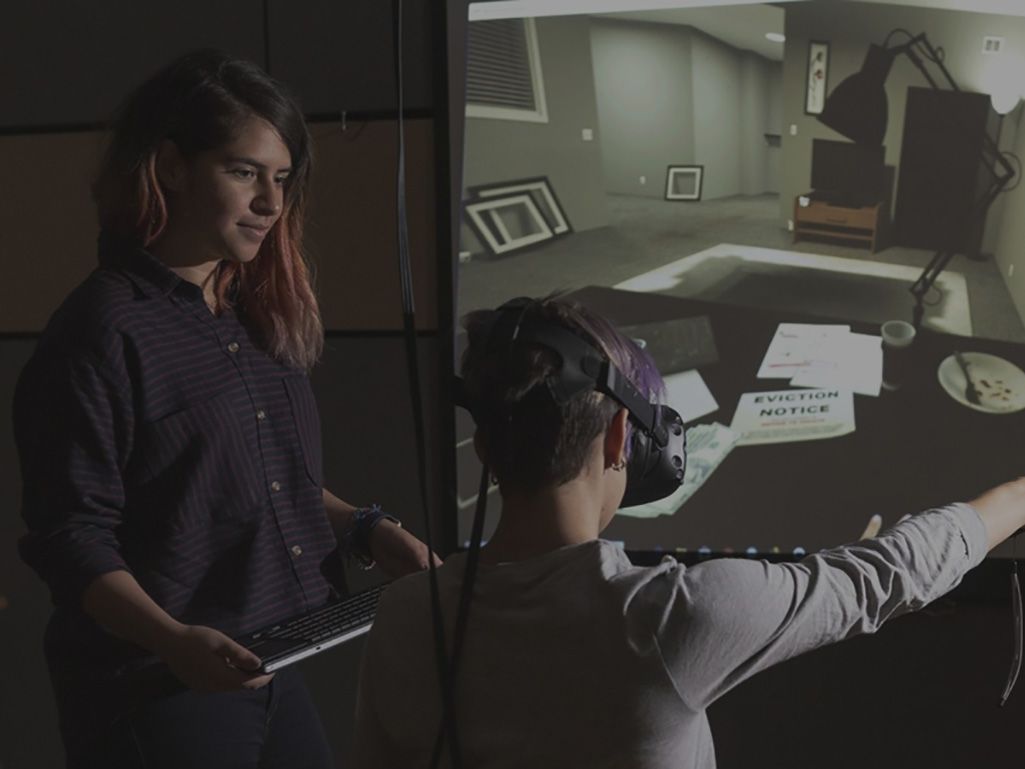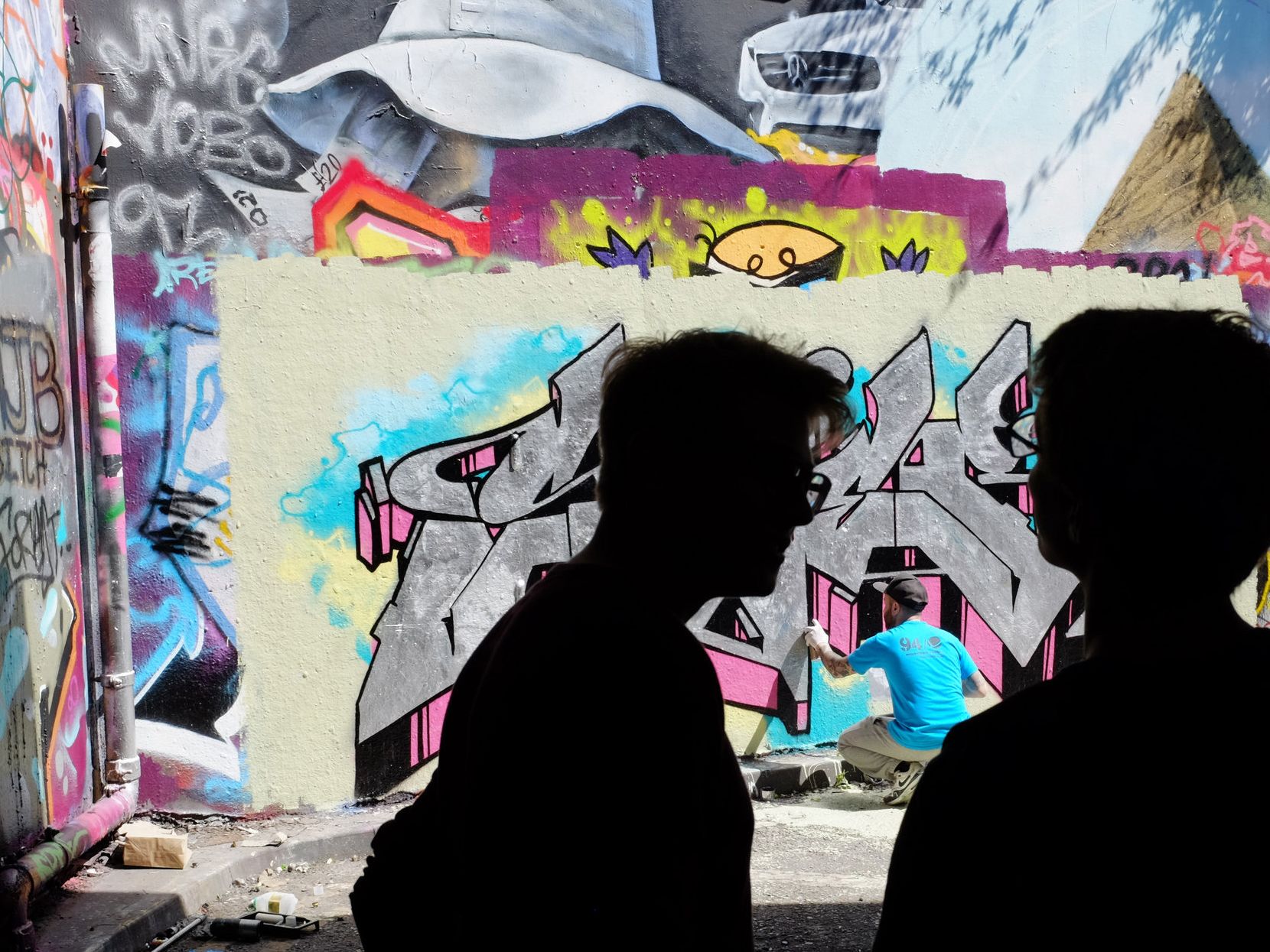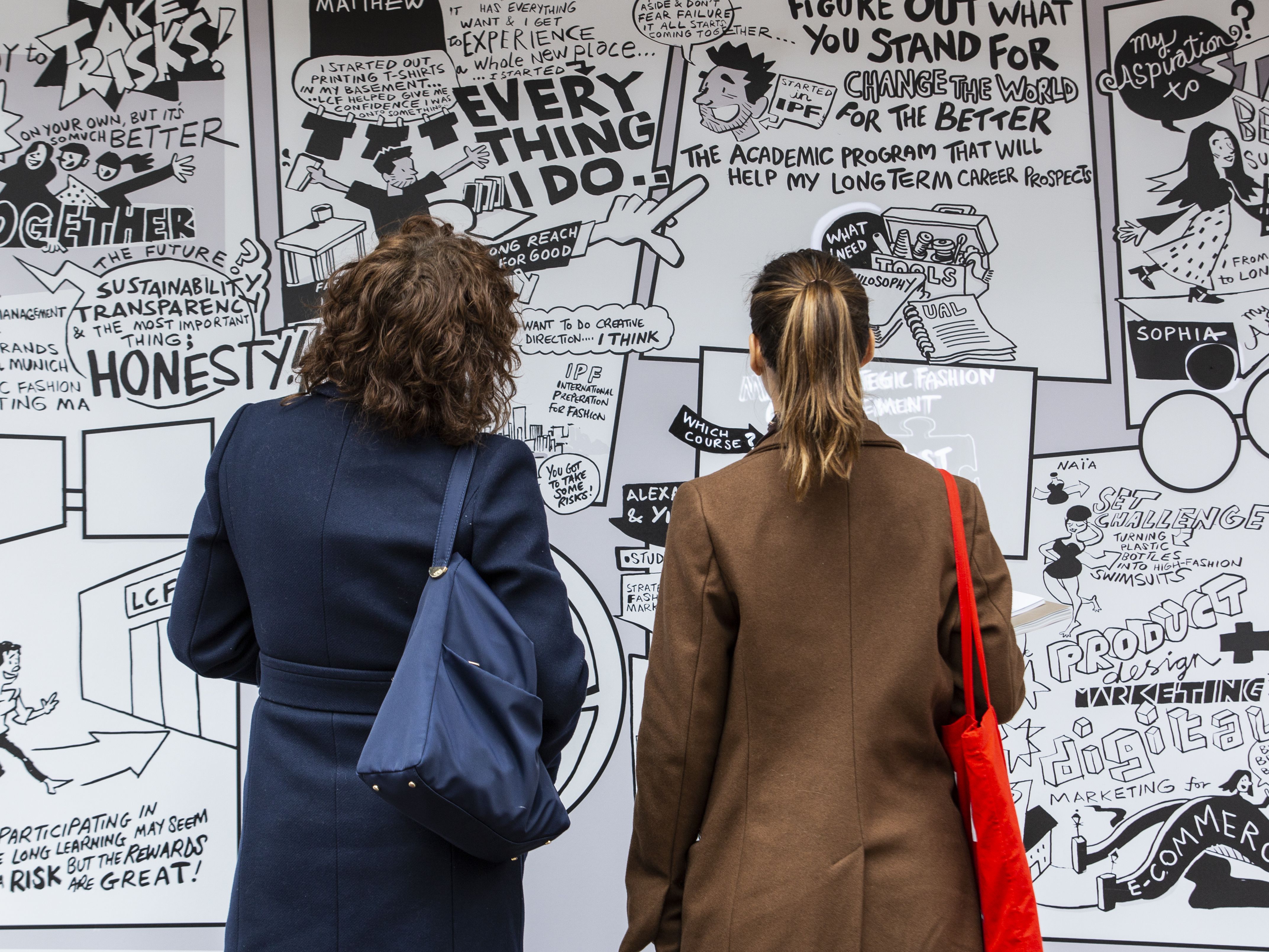With the rise of immersive technologies, expected to reach a value of £801m by the end of 2021 in the UK entertainment and media industry alone, more businesses have been exploring how to use virtual, augmented and mixed reality tools to offer new and unique experiences for their customers.
Since its launch in 2019, ACE IT (Accelerating the Creative Economy Through Immersive Technologies) has been supporting small and medium-sized enterprises (SMEs) in London to harness the power of immersive tech to conceptualise, research and develop their products and services. The programme, delivered by London College of Communication in collaboration with London South Bank University, includes networking events, innovation sprints and specialised training across the immersive technologies landscape.
We spoke with some of the start-ups who joined ACE IT this year to find out more about their plans to incorporate immersive technology in their business operations.

Kristina Thiele, co-founder of ArtsXR
We are an immersive production studio specialised in creating bespoke creative solutions for the arts. Together with my co-funders and colleagues Alejandro Escobar and Chris Follows, our mission is to make Extended Reality (XR) technologies more democratic for artists and art spectators.
Even though I believe we have the technological and artistic expertise covered, we are still a relatively new company. We had been looking for advice on business, legal and funding matters, which led us to joining ACE IT this year. Also, immersive tech is a tiny world, even globally, so the idea of networking, meeting like-minded people and establishing new collaborations through the programme was very appealing!
As artists and designers, business thinking does not come easy to us. The 1-2-1 session we had with business advisor Hak Salih was particularly helpful — it made us think about our business model and how we want to move forward with ArtsXR after completing programme.
We're incorporating our learnings from ACE IT to continue pushing the boundaries in the arts, especially towards demystifying the immersive realm, introducing crypto art and the use of CleanNFTs. The other area we're expanding on is digital fashion, which has huge potential.
My advice for other start-ups thinking of joining a programme of support like ACE IT would be to think about the specific areas you need help with and what could be beneficial for your company. For example, the specialist knowledge you can tap into through ACE IT — in terms of technical, legal and business support — is phenomenal.

Chris Felder, Chief Technology Officer at Mini Fashion Monsters
Mini Fashion Monsters is a children’s online resale marketplace that encourages sustainable behaviour in fashion. We've been building up a community of parents, grandparents and families who recognise the value in buying and selling preloved items, and passing them along for other children to love and enjoy wearing them.
I learned about ACE IT while searching online for business help and grants for small enterprises. Because it was during the peaks of the Covid-19 pandemic, I was really keen to be part of a support network and meet other business owners who were going through the same.
I found the experience of joining the programme very useful, as they offer a lot of classes for start-up owners on different tech aspects, from cloud computing to web design. It was a great experience, and it has allowed us to start thinking about innovative ways to grow Mini Fashion Monsters.
We're now working on how we can use Artificial Intelligence in our e-commerce store to help our customers make better buying decisions. We're all about sustainability, recycling and how we can help the planet, and I'm excited to see how we can take our mission forward by incorporating this new tech into our operations!

Tristram Fetherstonhaugh, co-founder of GalleriesNow
Do you ever wish you could access art exhibitions hosted at world's leading galleries from your own house? Well, that's what GalleriesNow was created for. We are the leading independent gallery guide connecting collectors, curators, artists and art lovers. We provide our visitors with the chance to see great art from all around the world, thanks to online and physical maps, NearMe functionality, installation views and VR previews.
We heard about the ACE IT programme on Twitter and it looked like it would fit perfectly with our plans. We were considering building a totally immersive platform for our growing archive of 360 photography exhibition, and we felt this would be an excellent way to learn about the state of the art in immersive tech and explore different options.
The programme lived up to our expectations and more! We had the opportunity to attend talks and workshops to learn about all aspects of developing an immersive business, and it also gave us direct access to experts who effectively helped us make decisions on things like the best tech stack for us and our users.
In parallel to ACE IT, we developed a stage one prototype to look at 6 different types of art-specific immersive experiences and a navigational framework. We have now just won an Innovate UK award to continue the development phase up to pre-production prototype stage, which is incredibly exciting.
Lee Robinson, creative director at Maskomi
Maskomi is a visual collective based in Soho. We work with galleries, brands and music bans, creating interactive installations around the world.
Joining the ACE IT programme gave us an insight to the expert knowledge from LCC and LSBU, thanks to their tech workshop infrastructures. As an LCC graduate, I have strong ties with the College and I was very interested in the quality and delivery of the programme from both universities.
One of the main highlights of joining ACE IT was meeting VR artist Sean Rodrigo — his workshop on Augmented Reality (AR) was excellent and really inspiring.
We're currently developing an immersive AR application to use within the Hotel industry with the amazing help from LSBU. We'll also start a VR dance programme in December with schools in London, working with young people who have been excluded or are at risk of exclusion; it will combine immersive technology with physical performance, allowing students to explore alternative realities with their peers, and to encourage a wider conversation about positive and creative choices.
If you're a start-up thinking about joining ACE IT, I would encourage you to join all the workshops available on the programme. Even if the subject doesn't feel relevant at first, there will be something beneficial for your business.

Simon Powell, founder and CEO of Fit 2 Trip
We developed Fit 2 Trip to provide travel insurance to as many people as possible, regardless of their medical circumstances or age. We work with underwriters and medical specialists, using our medical screening process to assess our customers on an individual basis and tailor their travel insurance to fit them.
I decided to join ACE IT as part of a learning exercise to get to understand the types of technology available and how users are engaging with them. In the environment of the pandemic, it has been impossible to get to conferences and exhibitions to see what new technology is coming through. This has been particularly challenging for SMEs, because it made us loose sight of new innovations and assessing how they could be applied to the business.
The ACE IT programme gave me a virtual window into some of these new technologies to help me assess their viability for my business. I found the workshops were very useful - I was particularly interested in learning about the general 'gamification' of user experience.
If your business is involved in technology in anyway, it's worth a look!





